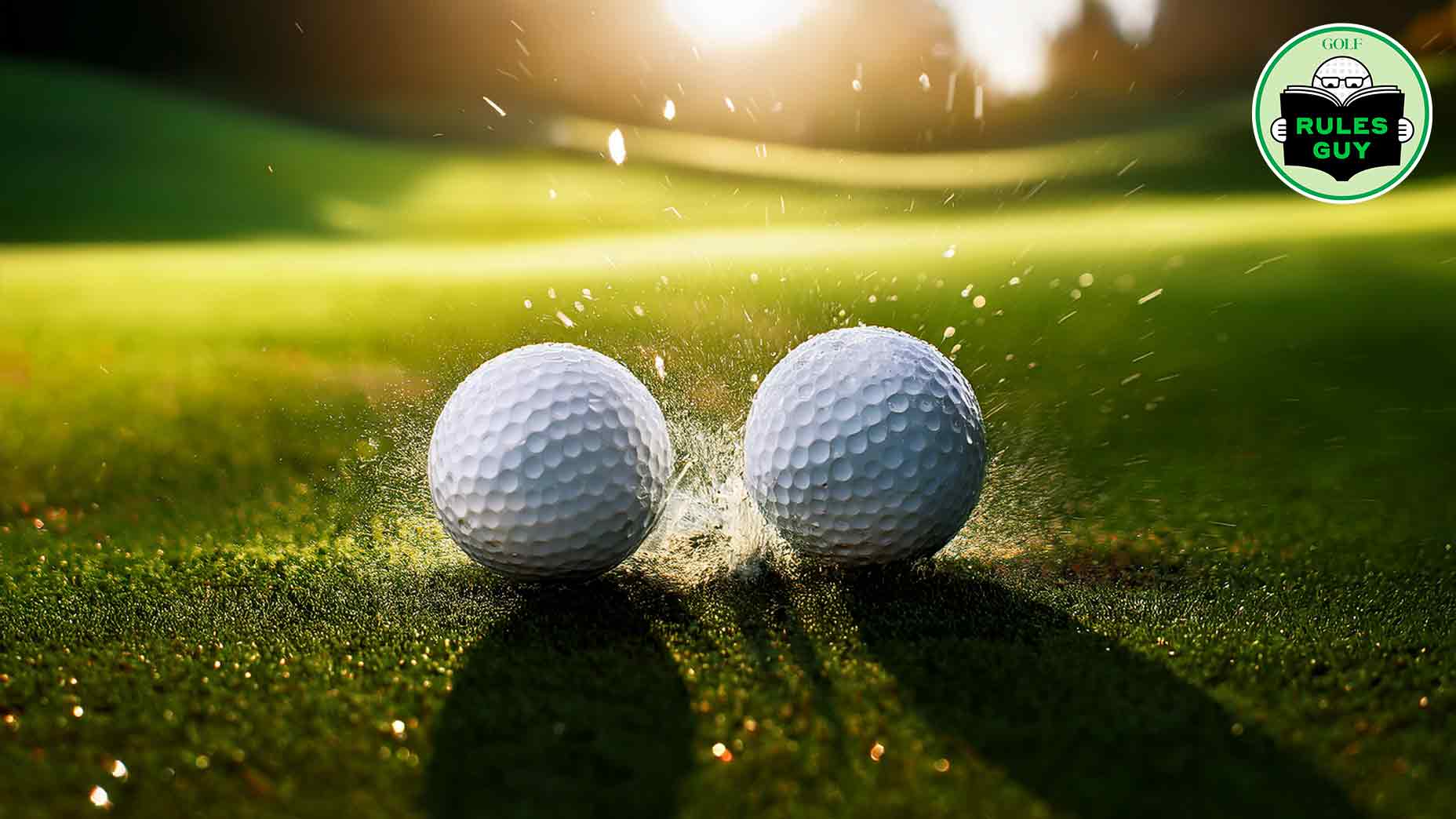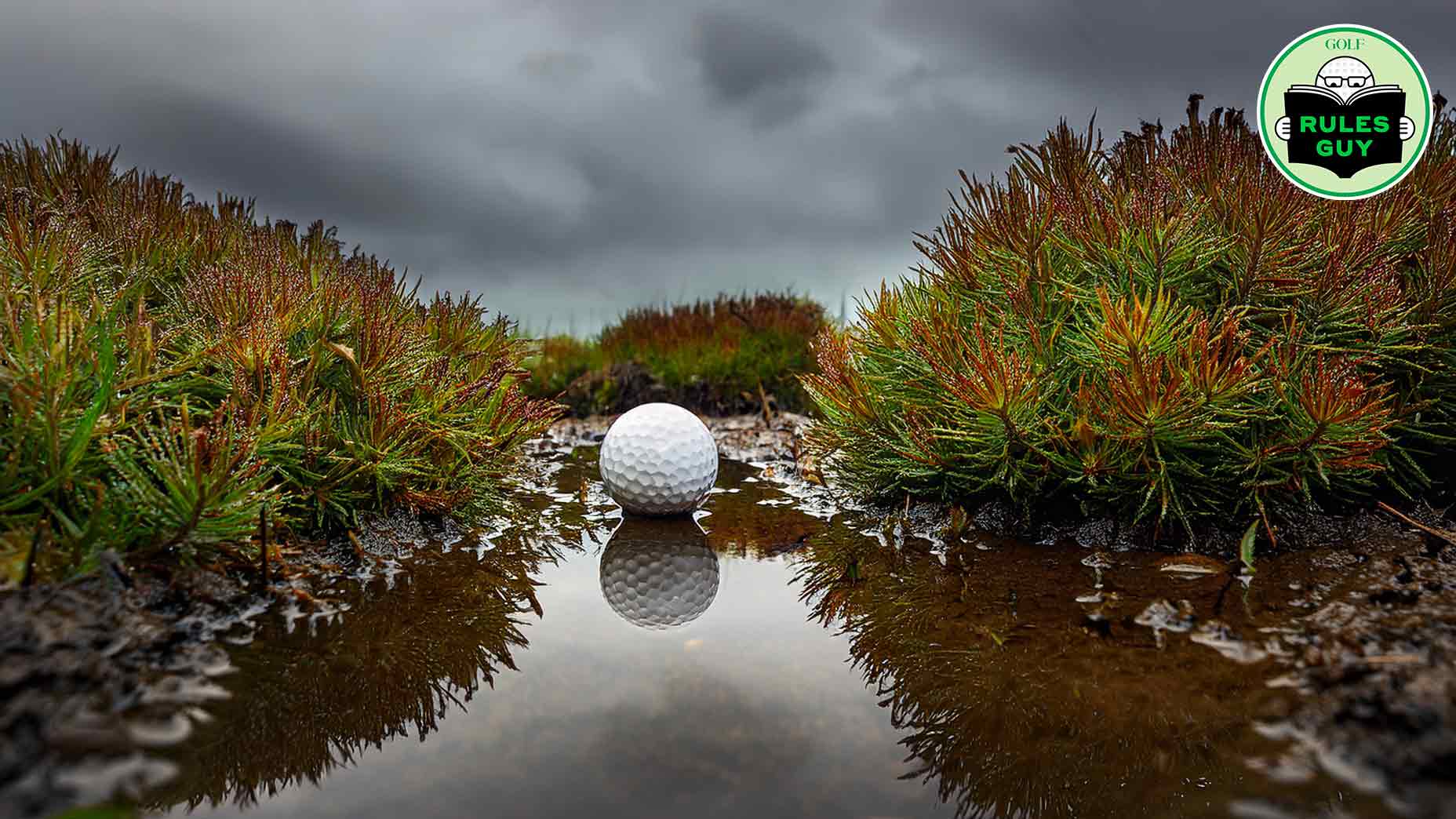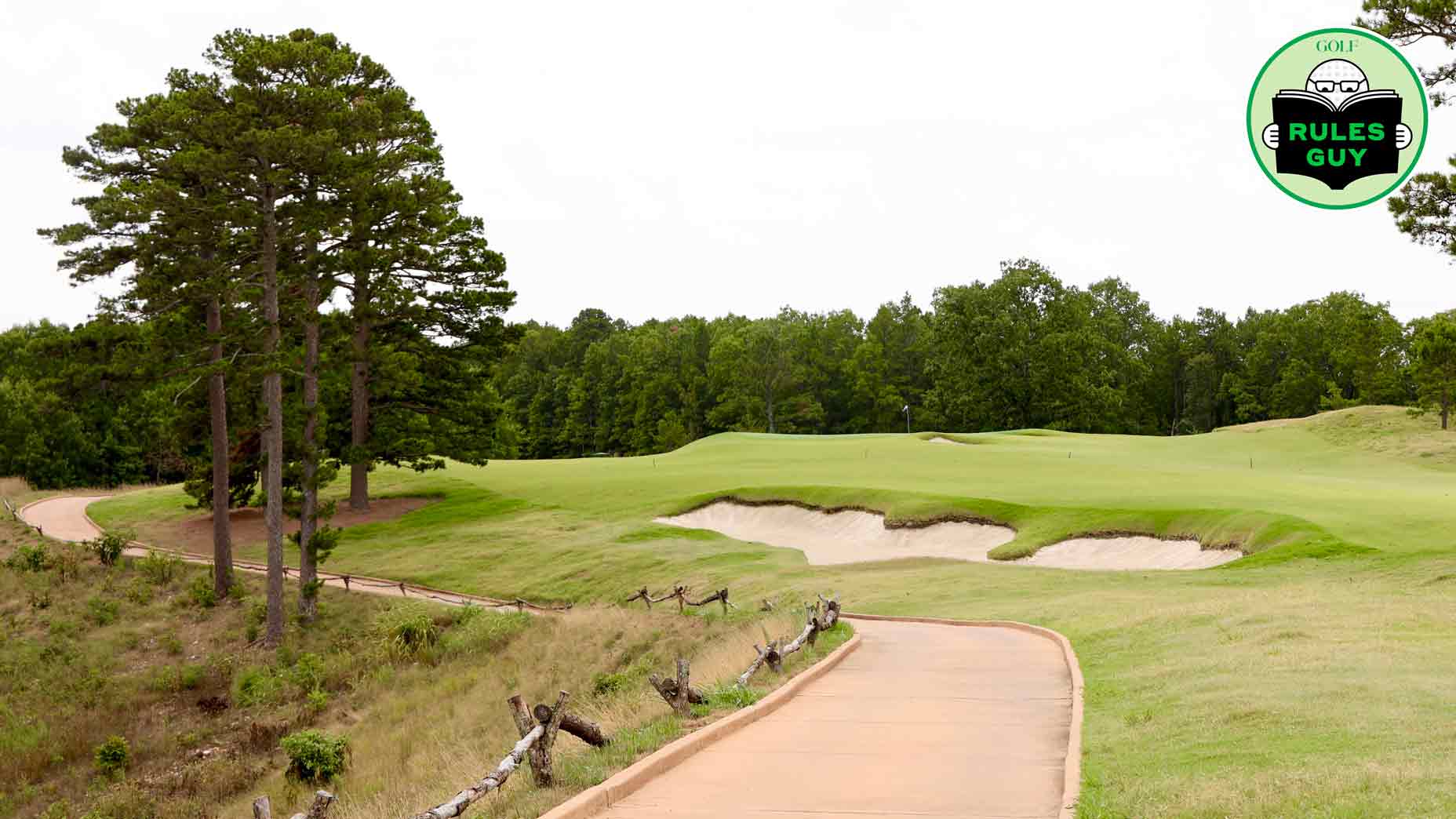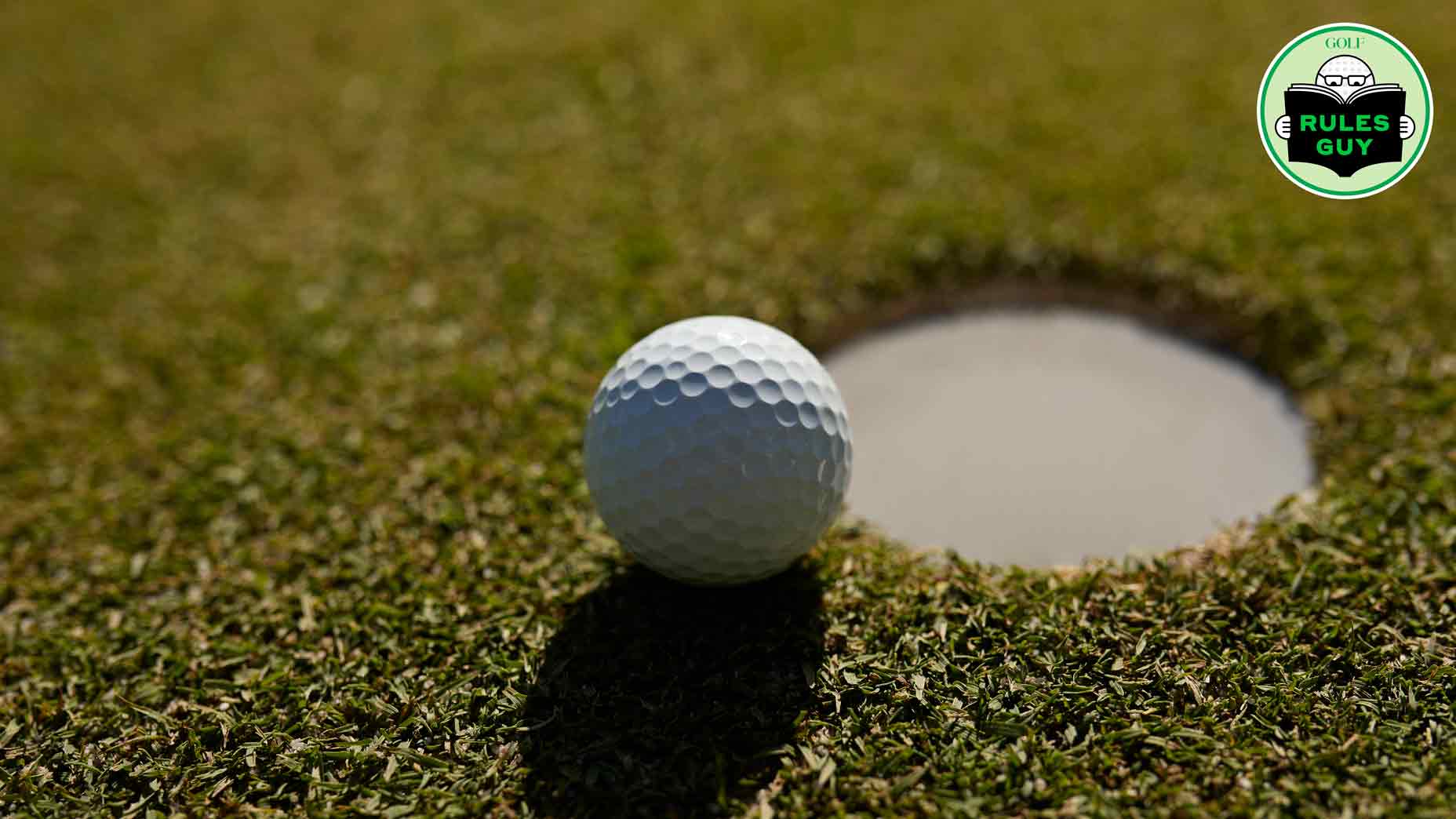Last week, this mind-bending photo spread across social media. Twitter user @MickColetta1 posted it first and immediately sparked the conversation: Is a ball embedded in the side of the cup a hole in one?
Hole in 1? pic.twitter.com/8IgW8XykMp
— Mick Coletta (@MickColetta1) March 25, 2019
Any golfer will have understandably dissonant feelings looking at this photo. On the one hand, we know what a holed shot looks like: the ball is resting in the bottom of the hole. On the other hand, this ball is very definitely in the confines of the cup — only grass and gravity are keeping it from settling happily at the bottom. It should go in. It belongs several inches further into the ground. So what’s the answer? Ace?
As I dived into the Rules of Golf, my confusion continued. What happens if the ball is embedded in the ground but also in contact with the flagstick, as show in the photo? Rule 13.2c seemed to address the situation, and reads as follows:
c. Ball Resting Against Flagstick in Hole
If a player’s ball comes to rest against the flagstick left in the hole:
If any part of the ball is in the hole below the surface of the putting green, the ball is treated as holed even if the entire ball is not below the surface.
Boom! There’s our answer, right? It’s touching the flagstick. Part of the ball is below the surface of the putting green. Ace, right? Not so fast.
Holed/1, part of the Definitions section of the Rules (far deeper within) provides a contradictory account:
Holed/1 – All of the Ball Must Be Below the Surface to Be Holed When Embedded in Side of Hole
When a ball is embedded in the side of the hole, and all of the ball is not below the surface of the putting green, the ball is not holed. This is the case even if the ball touches the flagstick.
Ah, rats. This seems to say completely the opposite! Unless, of course, the entire ball is “beneath the surface of the putting green.”
We enlisted the help of Thomas Pagel, the USGA’s Senior Director of the Rules of Golf, to sort through it. The answer, he said, is simpler than you might think.
“When dealing with a ball embedded in the side of the hole, we are only concerned with the entire ball being below the surface of the green, even is part of the ball is outside the circumference of the hole,” he wrote in an email. “If the entire ball is below the surface, the ball is holed. If the entire ball is not below the surface, the ball is not holed.”
He added that the “Definition of Holed” section of the rulebook takes precedence. Rule 13.2c, he said, exists for those times the ball is leaning against the flagstick but hasn’t fallen to the bottom of the cup — but isn’t embedded.
“But when dealing with a ball embedded in the side of the hole, this special case is not applicable because when the ball is embedded, generally speaking, the ball falling to the bottom of the hole is not dictated by the flagstick being there – it’s the ball being plugged into the putting green that is preventing it from falling in.”
So, to get back to the case at hand: Hole in one? Or not?
“It is really difficult to tell with the angle of the photo whether the ball is above or below the surface,” Pagel said. “The mystery continues!”
Thanks for nothing, USGA! (Just kidding — thanks, Thomas.) To help simplify things, here’s a handy guide to whether you’re celebrating or mourning what could have been.
1. Embedded, not leaning against the flagstick, not fully submerged: NO ACE
2. Embedded, leaning against the flagstick, not fully submerged: NO ACE
3. Embedded, not leaning against the flagstick, fully submerged: YES ACE
4. Not embedded, leaning against the flagstick, fully or partially submerged: YES ACE
So, Mr. @MickColetta1, we’re going to need some more camera angles so we can all sleep soundly knowing whether this was a one or a two.







